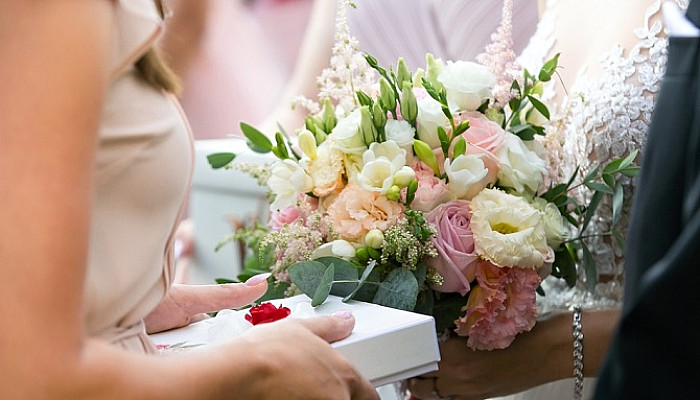
Wedding Gift Etiquette

Wedding gift and gift registry etiquette
Originally, the purpose of inviting wedding guests was to have them witness a couple’s marriage ceremony and vows and to share in the bride and groom’s joy and celebration. Wedding gifts for the bride and groom are optional, although most guests attempt to give at least a token wedding gift of their best wishes. Some brides and grooms and families feel that, for the expense and effort they put into showing their wedding guests a good time and to wine and dine them, the guests should reciprocate by providing nice wedding gifts. No etiquette book or rule condones this belief.
The couple often registers for wedding gifts at a favorite store well in advance of their wedding. This allows them to create a list of preferred or needed household items, usually including a favorite pattern for china, for silverware, and for crystalware; often including linen preferences, pots and pans, and similar items. With older brides and grooms who might already be independent and have lived on their own, even owning their own homes, they sometimes register at hardware or home improvement stores. This is intended to make it easy for guests who wish to purchase wedding gifts to feel comfortable that they are purchasing gifts that the newlyweds will truly appreciate. Taking this a step further, some wedding couples register with services that enable money gifts intended to fund items such as a honeymoon, home purchase or college fund.
Etiquette rules prohibit the bride and groom from soliciting wedding gifts, which would preclude them listing their place of gift registry, for example, in their wedding invitations. Wedding guests are supposed to ask for this information if they want it; however, many wedding couples do include the information in their wedding invitations with the intention of making it more convenient for invited guests.
Many older guests often find bridal registries vulgar. They can be seen as an anathema to traditional notions behind gift buying, such as contravening the belief that “ one should be happy for what they receive ” , taking away the element of surprise, and causes the buying of wedding gifts a type of competition, as the couple knows the costs of each individual item.
This content was created by AI





















